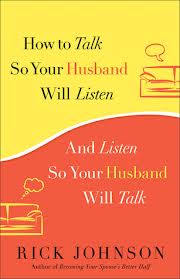You may have heard that communication is the biggest ingredient in a happy marriage. Did you know it’s also an essential ingredient for parenting? Parents must be able to communicate to decide what’s best for their children. It’s an important aspect of keeping a couple feeling close and connected to one another. Furthermore, communication allows couples to support one another through the ups and downs of parenthood.
There are many reasons why good communication may fall short in a marriage. If you want the best for your spouse and your children, you’ll learn to overcome these barriers and work as a team. Here are 8 common barriers to effective communication in marriage and what you can do to help overcome them.

This is a guest post written for the Koala Mom by Rachael Pace; all opinions expressed are the writer’s.
No Trust in the Relationship
A lack of trust can put a huge dent in good communication between parents.
If there is no trust in the relationship, partners will be less likely to confide in one another about how they are feeling and what’s going on in their lives.
Renew your commitment to one another. This means ending any bad habits that led to a lack of trust in the relationship, such as gambling problems, secret addictions, or an emotional or physical affair. You must recommit yourself to your partner and be honest with them.
Building your marriage back up is another essential step in renewing trust. Seek marriage counseling, learn to listen to one another, and learn to forgive and move forward. Your children will benefit when you and your spouse trust in one another.
Physical Distance Between Spouses
It’s hard to talk to someone when you feel distant from them. Do away with emotional distance by striving to connect with your spouse regularly through physical contact. Research shows that something as simple as holding hands with a partner can lower stress and increase trust. This can make communication in marriage feel much more natural.
No Idea How to Problem-Solve
Picture this scenario: You want the kids to go to public school, your wife wants them to go to private school. She says you don’t care about the children, you say she’s an absolute snob. Your verbal battle goes back and forth with offensive speech and the problem is never solved.
Yikes! The unfortunate truth is, most couples are not born with the natural ability to communicate with one another. A simple disagreement can quickly turn into an argument and snowball out of control.
The trick to building good communication in marriage is learning how to deal with conflict.
Speak to solve, not to hurt.
Do not use an argument as a chance to belittle your spouse. Instead, couples should look at an argument as an opportunity to fix a problem. Tackle the problem at hand and work together to solve it. This will include empathizing with your spouse, even when it is not easy to do so. It involves listening and compromising to do what’s best for the children.
Emotional Barriers
It can be difficult for couples to talk to one another about important topics if there are emotional barriers in the way. Such emotional barriers may include low self-worth, past experience with betrayal, or fear of judgment from a partner.
Learn to confide in your spouse. Talk about your past relationship, communicate your fears, share your passions and goals, beliefs, and don’t be afraid to be emotional with your spouse. They love you and want to be on this parenting journey with you as your partner, not your judge and jury!
Verbal Barriers
Is your spouse a mind-reader? This isn’t a trick question. In fact, there is a very simple answer.
No, they are not!
 You can’t change what you don’t acknowledge, and how can you acknowledge something if it’s never said out loud? Talking is important for every couple—especially ones raising children together. Remove verbal barriers by expressing yourself freely with your partner.
You can’t change what you don’t acknowledge, and how can you acknowledge something if it’s never said out loud? Talking is important for every couple—especially ones raising children together. Remove verbal barriers by expressing yourself freely with your partner.
If you feel like you’re communicating clearly, but your spouse isn’t hearing what you’re trying to say, maybe you need to find another way to express yourself. Books such as How to Talk so Your Husband Will Listen and Listen So Your Husband Will Talk can help you improve your communication skills.
Cultural Differences in a Marriage
Marrying someone of a different culture can open spouses up to a world they never knew before. It teaches your children to grow up with a diverse and interesting background that will likely make them more accepting of others.
Wonderful benefits aside, cultural differences can sometimes make good communication in marriage more difficult. He may have been raised to be open and honest about problems in the relationship, where she may prefer to sugar-coat issues or sweep them under the rug.
Either way, both have been raised a certain way and meeting in the middle can sometimes feel impossible. The key to healthy communication in marriage when there are cultural barriers is to be respectful. Do not make assumptions about what your spouse is feeling, based on their background.
Lack of Interest in Your Spouse
It may be that one partner is willing to talk, but the other one is showing a lack of interest in the conversation. They may display this by giving curt responses, playing with their phone, or showing hostile body language.
Try to approach the subject carefully and at a time where neither spouse is distracted by work, television, or the children.
Combat a lack of interest by:
- Making time for each other to discuss little things about your day as well as big topics
- Keeping your conversation brief if it is about an uncomfortable topic
- Having important conversations privately
- Using a friendly tone that won’t make your spouse go on the offensive
Inability to Open Up
Part of having good communication means you and your spouse are willing to be vulnerable with one another. Unfortunately, this isn’t always easy to do.
Research shows that a lack of communication is often cited as one of the most common reasons for divorce. Therefore, if you want a strong and healthy marriage, you must be willing to open up to one another. Couples must share their thoughts and feelings honestly with one another, even when doing so feels awkward, embarrassing or even hurtful.
Good communication in marriage is the key to successful parenting.
It helps couples to feel connected, understood, and appreciated. Learning to overcome these verbal, physical, and emotional barriers will help you and your spouse to be the best partners and parents possible. When you do this, both your children and your marriage will benefit.
How do you and your spouse overcome barriers to good communication in your marriage?
 Rachael Pace is a relationship expert with years of experience in training and helping couples. She has helped countless individuals and organizations around the world, offering effective and efficient solutions for healthy and successful relationships. She is a featured writer for Marriage.com, a reliable resource to support healthy happy marriages.
Rachael Pace is a relationship expert with years of experience in training and helping couples. She has helped countless individuals and organizations around the world, offering effective and efficient solutions for healthy and successful relationships. She is a featured writer for Marriage.com, a reliable resource to support healthy happy marriages.

No Responses Yet